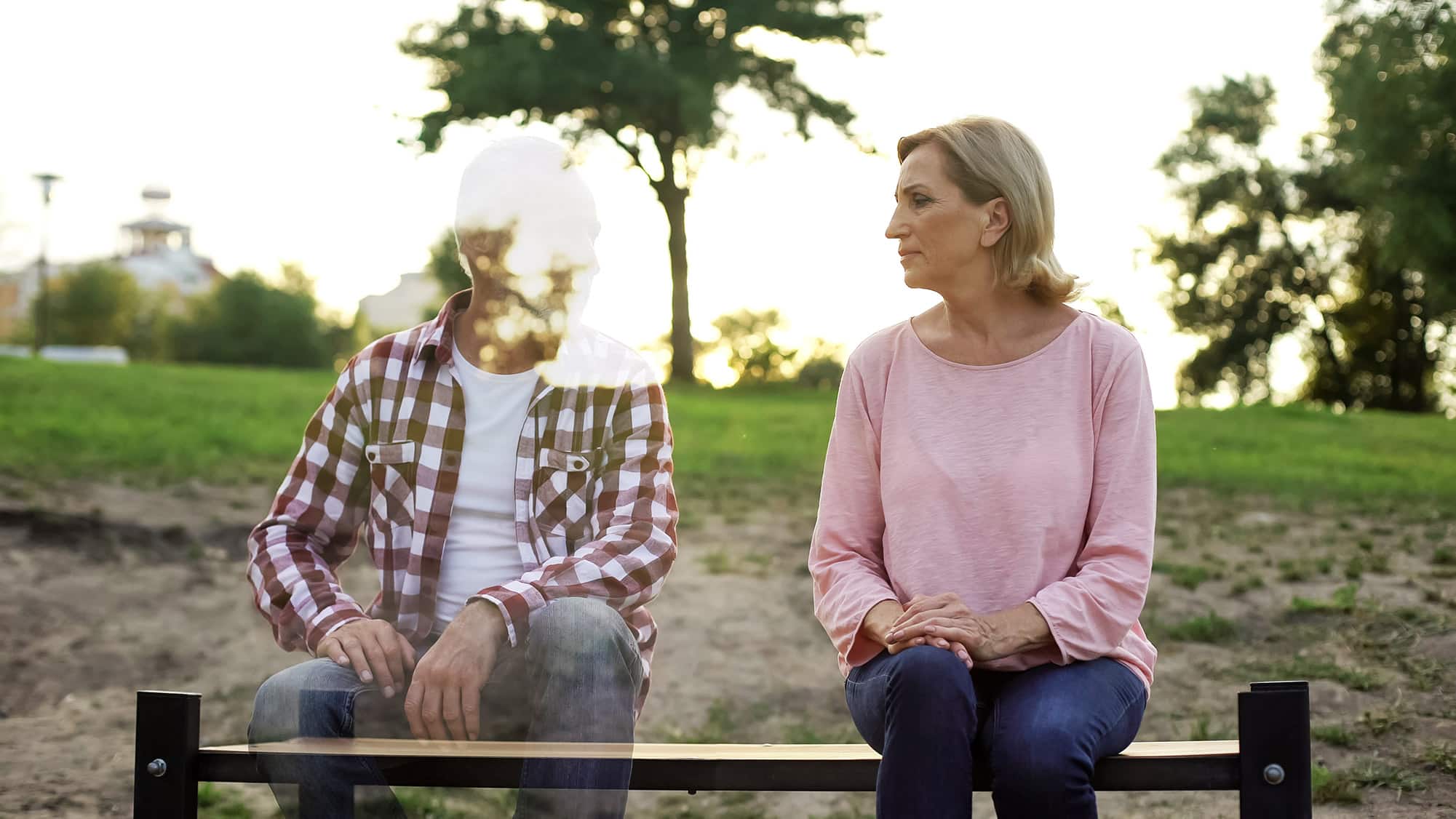What is grief? Grief is the uncontrollable and natural reaction to the death of someone to whom you feel connected or attached. Your relationship may have felt secure (loving, respectful), or insecure (ambivalent, unpredictable). Either way, when you feel connected to someone, you will experience grief after their death.
You can also grieve for people you do not know personally. A favorite author, movie star, humanitarian, or musician dies. The thousands of people who have lost their lives in the global pandemic.
If you are experiencing grief for the first time, you will likely feel overwhelmed by the complex set of emotions that seem to override your rational mind. While this is extremely unpleasant, there isn’t anything wrong with you. This is grief. You may feel foggy, angry, anxious, forgetful, yearning, sad, bewildered, depressed … the list goes on and on.
If you have experienced grief before you may be familiar with these feelings, but every loss feels different, and it is never easy.
One thing you may find helpful to know: How you feel now is temporary. While you will miss the person who died throughout your life, there will come a day when the frequency of the pain subsides. You will still miss and love them. It will still hurt. But there will be more times where you can remember them without feeling bowled over.
As bereaved father Joe Biden said in his eulogy of John McCain, “You know you’re going to make it when the image of your dad, your husband, your friend, crosses your mind, and a smile comes to your lip before a tear to your eye. That’s when you know, and I promise you, I give you my word, I promise you, this I know, that day will come. That day will come.”
What Can I Do in the Early Days and Months of Grief?
The most important thing to remember is that when you are feeling intense grief, self-care is your number one job. Get plenty of sleep and tend to your physical body first with healthy food, moderate exercise, and a little TLC. Go easy on your mind, too. It can be easy to be hard on yourself when you are grieving, but just think of what you are going through and how you would treat a friend in the same situation.
Try to surround yourself with supportive friends and family. Not everyone will make the cut, and you may need to limit time around people that are not supportive. Some people find attending a grief support group is helpful, while other people find the community they need among their friends.
Honor your grief. Some people try to stay busy, but the only way out is through. Try to find a balance between turning into your grief and taking a break from it. This is something many of us do naturally, and it is explained in detail in the Dual Process Model of Mourning.
What Does Grief Feel Like?
In her article “This Is What Grieving Is Like,” author Barbara Karnes offers us a first-person view into the wide range of emotions and feelings that can arise during grief. In fact, grief professionals agree that grief can impact us on six different levels:
- Physical sensations.
- Feelings.
- Thoughts or cognitions.
- Behaviors.
- Social difficulties.
- Spiritual searching.
For most of us, the experience of grief is uncomfortable and at times may seem intolerable. Many people ask, “Is what I’m feeling normal?” While no two people experience grief in an identical way, chances are, what you are feeling is normal — it just doesn’t feel good. What determines how you will feel when you are grieving? Our reaction to loss is influenced by several interpersonal and intrapersonal factors:
- The nature of the relationship we had with our loved one.
- The way in which the death occurred.
- Our existing coping strategies (or lack thereof).
- Age and developmental stage.
- Amount of social support we have after the loss.
How Do I Know if I am Grieving “Right”?
There is no right way to grieve. Because our relationships are unique, our experience of grief is, too. Your experience of grief will not look identical to anyone else’s. A word of caution: you may have been told that you need to go through the “five stages of grief,” but research has proven that not everyone experiences all five stages, and many of us experience feelings that are not even on the list, so don’t force yourself to feel anything. Instead, learn how to be with what you feel naturally.
Do I Have to Know the Person Who Died to Feel Grief?
It is worth noting that our grief is not limited to human beings. Many of us feel distraught when our companion animals die. And what about grieving celebrities? While the intensity and duration might understandably be much shorter than the grief we feel for a close family member, we can in fact feel grief for someone we have never met.
In his insightful article, “The Death of Prince,” esteemed grief researcher Dr. Robert Neimeyer observes, “Rather than questioning the legitimacy of this experience in the case of the death of a celebrity with whom we are highly identified, it might be more appropriate to marvel at the human capacity to invest ourselves greatly in the lives of others, well beyond our immediate circle of family and friends.”
The only way to avoid grief is to have no attachments. And what kind of life would that be? In the words of suicidologist Edwin S. Shneidman, “to grieve is to pay ransom to love.” While the pain of grief may be intense, I don’t know anyone who would trade their love of someone who died for freedom from the pain that follows.
Grief is not a problem to be solved. It is a process — a natural one at that. It is not a mental illness or a sign of weakness. It is natural, and your experience of grief will be as unique as your relationship to the person who died.
What Is Grief? Bereavement? Mourning?
The term grief is often used interchangeably with bereavement, mourning, and loss, but grief professionals distinguish between the three to avoid confusion:
- Grief is the uncontrolled and natural reaction to the death of someone to whom we were attached, including physical and emotional manifestations.
- Bereavement is the objective state of having a relationship with someone who has died. In other words, it’s the fact of the matter regardless of how you react or feel.
- Mourning is the process of managing and coping with a death, and it includes internal processes (“How am I going to raise the children on my own?”) and outward social expressions (for example, wearing black or participating in funeral rituals). There is an element of cultural influence here, and to some extent an ability to choose how to express one’s bereavement.
What Is the Difference Between Grief and Loss?
In addition to a death-related loss, many people use the word grief to describe their state after a relationship breakup, the loss of a job or dream, and many other non-death losses. Personally, I like to reserve the term grief to describe the reaction to a death-related loss, and loss reaction to describe the experience of non-death related losses.
This distinction is not to minimize the pain one might feel outside of grief itself, but to differentiate the two. A major non-death loss may feel very similar to a death-related loss, however death is permanent. One could certainly argue that divorce is also permanent, and yet there are rare instances where two people may reconcile, and many instances where ex-spouses cross paths (willingly or not).


